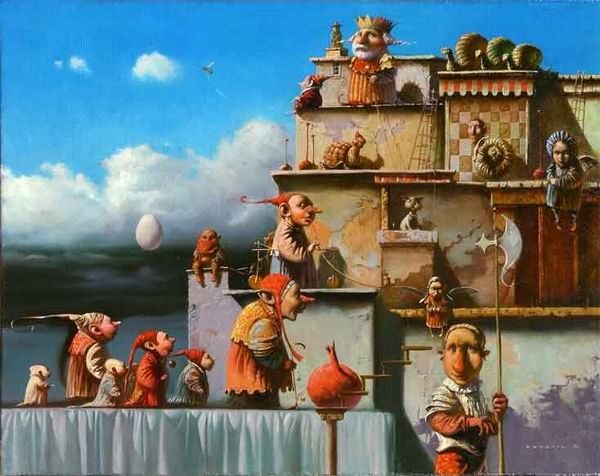
Astronomy of Endgame: Hung Men and Chipped Pieces
Chess has long been a rich source of inspiration for poets, serving as a metaphor for life, love, war, and the human mind. Its structured complexity mirrors the interplay of order and chaos that poets often seek to capture. Here is how chess weaves its way into poetry:
Prodigy By Charles Simic
I grew up bent over
a chessboard.
I loved the word endgame.
All my cousins looked worried.
It was a small house
near a Roman graveyard.
Planes and tanks
shook its windowpanes.
A retired professor of astronomy
taught me how to play.
That must have been in 1944.
In the set we were using,
the paint had almost chipped off
the black pieces.
The white King was missing
and had to be substituted for.
I’m told but do not believe
that that summer I witnessed
men hung from telephone poles.
I remember my mother
blindfolding me a lot.
She had a way of tucking my head
suddenly under her overcoat.
In chess, too, the professor told me,
the masters play blindfolded,
the great ones on several boards
at the same time.
Dušan (Charles) Simić was a Serbian American poet. His work has won numerous awards, among them the 1990 Pulitzer Prize, a MacArthur Foundation “genius grant,” the Griffin International Poetry Prize, the Wallace Stevens Award, and the appointment as US poet laureate. Although he emigrated to the US from Yugoslavia as a teenager, Simic writes in English, which he had learned to speak at 15, drawing upon his own experiences of war-torn Belgrade to compose poems about the physical and spiritual poverty of modern life (Poetry Foundation).
He was known for his minimalist, imagistic style, often crafting concise yet evocative poems that feel like intricate puzzles. His terse, vivid imagery and enigmatic quality reflect his signature style.
"I have often cut a chess problem from a newspaper and taped it to the wall by my bed so that I may think about it first thing in the morning and before turning off the lights at night. I have especially been attracted to problems with minimum numbers of pieces, the ones that resemble the ending of some long, complicated, and evenly fought game. It’s the subtlety of two minds scheming that one aims to recover."

Simic had a deep and personal connection to chess that shaped both his life and his work, including his poem "Prodigy." Born in Belgrade in 1938, Simic grew up during the turmoil of World War II, a period he vividly recalls in "Prodigy." It was in this war-torn environment that he learned to play chess as a young boy, around the age of six, taught by a retired professor of astronomy. This early introduction to the game left a lasting impression on him, as he became quite skilled—good enough to beat not only his peers but also many adults in his neighborhood.
In "Prodigy," Simic reflects on this childhood experience, writing, "I grew up bent over a chessboard," a line that captures both his literal engagement with the game and a metaphorical sense of living in a strategic, high-stakes world akin to a chess match. The poem intertwines his memories of chess with the chaos of wartime Belgrade, where Allies planes rattled his surroundings, and he questions whether he truly saw "men hung from telephone poles" or if such horrors were shielded from him by his mother’s protective gestures.
 "Kraft Durch Freude" (Strength Through Joy), Belgrade during WWII Nazi occupation
"Kraft Durch Freude" (Strength Through Joy), Belgrade during WWII Nazi occupation
Beyond the poem, Simic has spoken about how chess influenced his approach to poetry. He likened writing his short, meticulously crafted poems to playing chess, where every move—or word—matters, and the endgame must deliver both inevitability and surprise, much like a well-executed checkmate. He credited chess with making him obsessive and tenacious, traits that fueled his persistence in revising poems over months, akin to replaying lost games in his mind to understand his mistakes.
The kind of poems I write—mostly short and requiring endless tinkering—often recall for me games of chess. They depend for their success on word and image being placed in proper order and their endings must have the inevitability and surprise of an elegantly executed checkmate.—Simic, The New York Review of Books
So, Simic’s connection to chess wasn’t just a pastime—it was a formative experience that wired his mind for strategy, patience, and precision, qualities that echo in the stark, haunting imagery of "Prodigy" and throughout his poetic career.
.
.
